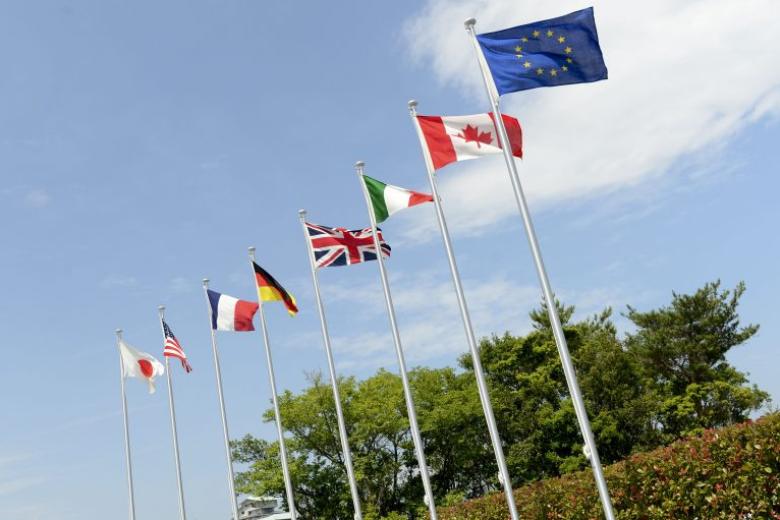Legislative enactments and court decisions, together with social-historical events, provide the causal mechanisms that enable scholars to trace the evolution of ownership paradigms in different jurisdictions. In addition, shifts in ownership paradigms result from the circulation and flow of legal ideas. The circulation and flow ultimately help to identify foreign and vernacular creations.
Do Latin notaries qualify as ‘courts’ and are they bound by the rules of jurisdiction under the European succession regulation?
- Law
“What’s in a name?” – William Shakespeare’s famous question readily comes to one’s mind when analysing whether a national legal authority qualifies as a ‘court’ under the European Succession Regulation. In other words: what’s in a ‘court’? It is this very question that Member States are obliged to answer in the context of said Regulation.

Jam v. International Finance Corporation. Het U.S. Supreme Court over de immuniteit van een internationale organisatie
- Law
This blog is only in Dutch. Op 27 februari jl. deed het US Supreme Court een interessante uitspraak over de immuniteit van een internationale organisatie. Het gaat om de International Finance Corporation (IFC), een onderdeel van de World Bank Group. 184 staten, waaronder India en de VS zijn aangesloten. Deze organisatie financierde de ontwikkeling van een kolencentrale (de Tata Mundra Power Plant) in India (Gujarat) met $ 450 miljoen.

Cases, materials and text on judicial review of administrative action (Hart 2019)
- Law
Administrative law, and specifically the law concerning judicial review of administrative action, has been regarded by doctrine until the second half of the twentieth century as a product of the national history and tradition of a state, and hence, because of the different national traditions, as an area in which there was, in general, little room for convergence.

Towards the end of German housing (construction) subsidies?
- General
- Law
More than ten years after the European Court of Justice ruled that the German Eigenheimzulage was in breach of European law, the EC also started questioning its successor, the Baukindergeld. ITEM had previously concluded that the Baukindergeld was in breach of European law. We now await the conclusion of the European Commission (EC), which had indicated that it would enable Germany to defend the current rules. If the EC does not agree with the German answer, this could once again mean the end of a German housing (construction) subsidy.

Ten months later: a retrospective of Wightman
- Law
It is now almost ten months since the Court of Justice handed down its ruling in Case C-621/18 Wightman and Others v Secretary of State for Exiting the European Union. At the time of the ruling, I felt that the Court of Justice had got its ruling wrong, profoundly wrong in fact.

Blog: Law student Christoph Samen on exchange in Toronto, Canada
- Law
Hey there!
My name is Christoph, I am 23 years old and I am proud to be a Maastricht University student. Originally, I am from Germany, but I chose to start my legal studies in Maastricht due to its international and welcoming atmosphere. I am third year European Law School student who currently spends his fifth semester on exchange. I feel lucky and grateful to be able to spend 4 months at York University, more particularly at Osgoode Hall Law School in Canada.

Brexit and data protection: what happens in case of a deal
- Law
Earlier today, the European Union and the United Kingdom reached agreement on a revised customs plan for Brexit. If approved by the EU Member States, the European Parliament and the UK House of Commons, this deal would allow the United Kingdom to exit the European Union on 31 October 2019 in an orderly manner. But what does this Brexit deal mean for data protection?

The perjury predicament at international criminal trials
- Law
The review hearing of Augustin Ngirabatware only lasted from 16th – 24th September 2019, yet those 7 days were enough to create shockwaves in this little town in the north-east of Tanzania.

Inclusive Global Tax Governance in the Post-BEPS Era
- Law
Income tax rules are under great pressure internationally, because multinational enterprises, such as Apple, Facebook and McDonald’s, and rich individuals, such as Messi and Ronaldo, avoid or evade taxes. In addition to that, the legitimacy of these rules can be questioned, because the OECD – an organization with limited membership – has set them. Developing countries have to play by these rules, but did not have a voice in their establishment. To address these issues properly, new, more inclusive forms of cooperation and coordination are needed.

